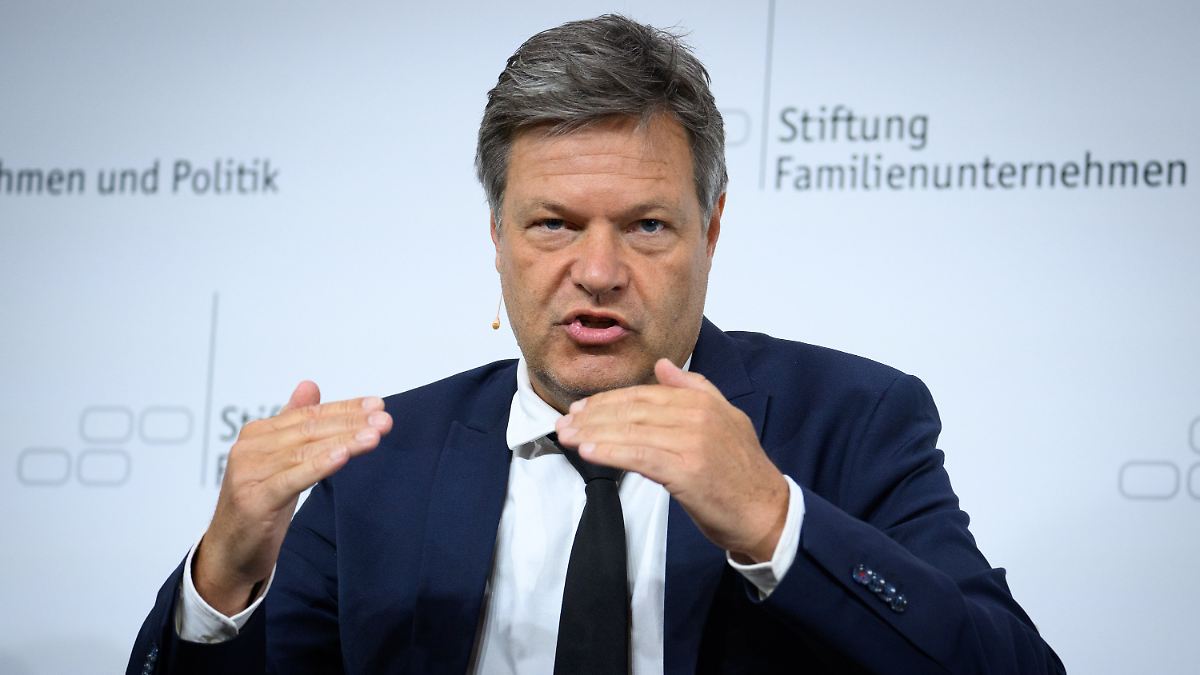FDP welcomes plan, SPD against
Habeck wants to suspend supply chain law for the time being
This audio version was artificially generated. More info | Send feedback
The supply chain law is intended to strengthen human rights. However, experts repeatedly criticize that it also leads to more bureaucracy and burdens companies. Vice Chancellor Habeck is now proposing to suspend the law. This is causing mixed reactions.
Vice Chancellor Robert Habeck wants to suspend the German supply chain law for two years. With this proposal, the Greens' economics minister caused a stir within the traffic light coalition. While FDP leader Christian Lindner welcomed the plan, the SPD was opposed to it. Habeck indicated that a suspension of the law could become part of the traffic light package to strengthen the location. The business community has repeatedly sharply criticized the law because it entails bureaucratic documentation requirements and is difficult to implement.
In view of the stagnation of the German economy, Habeck called for a pause until the corresponding European directive takes effect. “That would be the best thing. I think that is absolutely justifiable,” he said at the Family Business Day in Berlin's luxury hotel Adlon. Some companies want to implement the requirements. But the obligation could be suspended. That could be a liberating move. Habeck also indicated that it could take another two to three weeks before a result is available.
The traffic light government made up of the SPD, the Greens and the FDP wants to agree on a draft budget for 2025 by the beginning of July. At the same time, measures are to be presented to strengthen the business location, which has lost some of its attractiveness in recent years. Many experts say that Germany has structural weaknesses, which is why German companies are increasingly investing abroad.
Lindner: “Would be a building block of the economic turnaround”
Lindner welcomed Habeck's proposal. “It would be a building block in the economic turnaround.” It would make sense to repeal the German supply chain law now and implement the European directive in a streamlined form. The SME expert of the FDP parliamentary group, Carl-Julius Cronenberg, added that it was now up to the Minister of Labor, Hubertus Heil, who is actually responsible, to act quickly. “By suspending the law, we are creating a breathing space for SMEs.” This is long overdue in economically difficult times.
The law is intended to hold companies accountable for abuses in their supply chains, for example in the case of violations of environmental regulations or human rights violations such as forced or child labor. A spokeswoman for the SPD-led Ministry of Labor said that exploitation should not be a business model. The focus is always on implementation with minimal bureaucracy.
SPD labor market expert Martin Rosemann was surprised. “Does a top Green politician seriously want to sacrifice human rights in order to curry favor with family businesses?” Fair supply chains are not a burden, but a moral obligation. “The Minister of Economic Affairs has repeatedly spoken out on issues that are the responsibility of others for good reason,” said Rosemann. A spokesman for the Ministry of Economic Affairs said that Habeck had been publicly representing his position since last autumn. He wanted to avoid duplication in the reporting obligations of companies. However, large parts of the Greens are in favor of the law.




